As good as it gets … M&G staffers review the latest releases from Van Coke Kartel, Songdog and Kurt Vile.
Van Coke Kartel
Skop, Skiet en Donner (Rhythm Records)

It’s worth buying this album just for the pleasure of hearing Francois van Coke singing Flashdance’s Maniac with a nasal South African accent. “She’s a maniac, maniac on the floor, and she’s darnsing like she’s never darnsed before.” It’s inspired stuff, and not without a touch of true pathos. It speaks — unconsciously perhaps — to the outsider status of South African rock music, both globally and locally, and more particularly Afrikaans rock music. Another cover, of the great Koos du Plessis’s haunting Skadus teen die Muur, brings it all home and supplants the Kerkorrel version as my favourite. It retains all the poetry of the original, but drags it into the current politics of nostalgia. Or you need not think about it too much, and just enjoy its painful beauty and simple sadness underpinned by wistful electronica courtesy of Peach van Pletzen, aka Yesterday’s Pupil. There’s also a crap cover of JJ Cale’s Cocaine, but the less said about that the better. But the Van Coke Kartel originals on the album are winners. As Fokofpolisiekar offshoots go, aKing might have the cock rock, but Van Coke Kartel have the balls. Francois van Coke writes a mean lyric, managing to teeter along that thin white line that divides overblown rock metaphor and the starkly simple narrative of a consummate vocalist. The opener, Voor Ons Stof Word, is exemplary, a blend of rejiggered Eighties electro, the measured passion of Wynand Myburgh’s guitar and the plaintively brave voice of Francois singing, “Gee net tyd my hart / Dans saam terwyl ons heengaan / Voor ons weer stof word.” It’s the soundtrack to a certain kind of coming of age, without sacrificing the youthful exuberance necessary to satisfy the wilder fans. — Chris Roper
Shortstraw
We Slept Through It All (Independent)
If there is one reason to buy Shortstraw’s debut EP, We Slept Through It All, it’s the last track, Keanu Reeves. Their hilarious tribute to the Hollywood movie star had my friends and me in hysterics the other night as we listened to the EP. Yet We Slept Through It All is no one-hit wonder. There is the brilliantly titled LYSAGFY too, which is an acronym for Lower Your Standards and Go Fuck Yourself. Self-billed as “trash-folk”, Shortstraw have a great sense of humour and their tunes come off sounding like a blend of the Violent Femmes, Red Hot Chilli Peppers and Sublime, although they insist they sound like “a flower being molested by angels”. As their MySpace page prompts, “Please join our Facebook group if you think we aren’t shit … yeah!” Well, Shortstraw aren’t shit, even if they strike me as four guys who enjoy a good dose of toilet humour. — Lloyd Gedye
Gil Scott Heron
I’m New Here (Just Music)
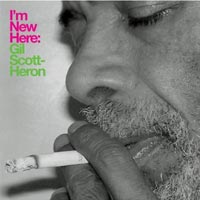
Sixteen years after his last album, American poet Gil Scott-Heron is back. Scott-Heron, who is known for his Seventies spoken-word recordings that set his political poems to soul, jazz and blues, was incarcerated in 2001 and 2006 on drug-related charges and finally paroled in May 2007. Following his release from prison, Scott-Heron began to perform live again and then was offered an opportunity to resurrect his recording career by XL Recordings boss Richard Russell. The resulting album, I’m New Here, sees Scott-Heron’s recordings updated with a dirty electronic-blues sound that is reminiscent of Tricky’s 1998 album Angels with Dirty Faces and the work of producer Kevin Martin’s King Midas Sound project. Dark dubby beats and gritty blues vocals rub up against each other in minimalist perfection. The result is a mesmerising album that will no doubt be sitting near the top of 2010’s end-of-year lists. Scott-Heron had no right to launch a comeback with an album this good, but thank God he did. — Lloyd Gedye
Hot Chip
One Life Stand (EMI)

Hot Chip have enabled us to witness the process by which a band studies, exhibits and polishes its sound — in this case, sophisticated, cigarillo-smoking pop. After three albums that enlisted all the nuances of the pop genre — soul, R&B, disco, electronica — their fourth has evolved the best of all of these into a near-perfect full-spectrum pop record. The band have definitely calmed down a bit on this album. I’m not sure whether that’s because they have now found a sound they are comfortable with, or whether they were a bit tentative — it’s hard to tell. The unhinged instrumentals of The Warning and the neon-pink-plated dancefloor explosion of Made in the Dark are all downplayed, barring one or two tracks, such as the opening Thieves in the Night, We Have Life and the single, Take It In, which are bum-shakers in their own right. There is also a fair amount of heartache and quarter-life crisis in the music: there are rather cynical undertones in the lyrics and melodies. But overall, fans will be pleased. This is Hot Chip doing what they do best, and doing it even better. — Ilham Rawoot
Mayer Hawthorne
Strange Arrangement (Red Flag)
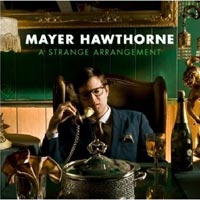
Mayer Hawthorne’s album Strange Arrangement found its way into my hands by accident and I’m happy it did — I don’t think I would have picked it up at the music store otherwise. The cover leaves you confused: a white boy surrounded by bling, or rather, antique symbols of success, and that’s perhaps the perfect way to describe his sound. It’s a continuation of music so historic in the North American time line that some have accused him of trying to recreate something only black people can do — soul music. The former hip-hop DJ from Detroit may not be on the same level as Motown artists Marvin Gaye or Smokey Robinson, but Hawthorne manages to hold his own. Personal favourites include Just Ain’t Gonna Work Out and Make Her Mine, which leaves me with a warm, fuzzy feeling. Surprisingly, Hawthorne had no plans of becoming a singer, but this singer-songwriter and instrument player is a bundle of pure talent. He also produced most of the instrumentals in this album himself. — Karabo Keepile
Songdog
A Life Eroding (Just Music)
The experience of this album is in the name. Each song sounds different and is a unique vignette, crafted with imagination, evoking the stories of a series of characters: the prophet who has lost his power, the old man in love with a hooker, the tryst between a visiting widow and a local. This love for narrative is born of the fact that lead singer Lyndon Morgans is also a playwright. The common thread is the slow erosion of life, its progression wearing down love, joy, optimism. But the album from this Welsh and Scottish trio is not all sad. Morgans’s lyrics convey a wry humour and a stubborn unwillingness to give up on romance. Although there is some folk in there, as with most good things, Songdog’s sound is unclassifiable. — Lynley Donnelly
Various Artists
The Rough Guide to Congo Gold (Sheer Sound)
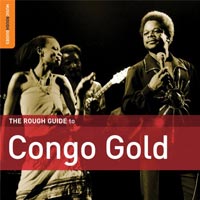
During Zaire dictator Mobutu Sese Seko’s reign, Congolese music was so reduced to inanities and praise-singing it’s a surprise that a song like Tchimurenga Zimbabwe ever came out. This song, by Sam Mangwana, came out in 1980, the year of Zimbabwe’s chimurenga (revolution), and is on Congo Gold, a retrospective collection of Congolese music from the 1940s to the 1990s. It features some of the greatest Congolese musicians, including Sam Mangwana, Dr Nico (Mamu wa Mpoy), and Franco and Tpok Jazz with Azda, an old favourite of mine. A compilation of this nature wouldn’t be definitive if one of rhumba’s greatest exponents, Tabu Ley Rochereau, wasn’t included. His song, Nakweyi Carreau, is so infectious I have put it on repeat. Backed by a slow, soulful sound and gentle strumming of the guitar and tentative blow of horns, Rochereau sings with a melancholic and melodic voice. He also has a duet with the queen of rhumba, Mbilia Bel, his protége, on the energetic Eswi Yo Wapi. Wendo Kolosoy, a legend in the Congo, is on there with Marie Louise, originally recorded in 1949. Congo Gold is a great CD; anyone who wants an introduction to some of the best of the rhumba genre is advised to get it. — Percy Zvomuya
Gablé
I’m OK (LOAF)
Written as a retort to lo-fi artist Daniel Johnston’s album Hi, How Are You, this new EP sees French experimental outfit Gablé expanding their DIY sound with cello and brass added to their loops, samples and general scruffy tomfoolery. With 12 tracks across 19 minutes, it is a little on the short side, but it is still crammed full of interesting ideas and sounds, with subject matter ranging from presidential assassinations to suicide and everything inbetween. But on the whole this EP is a darker affair and has a slightly more menacing tone than their debut album, Seven Guitars with a Cloud of Milk. The thing about Gablé is that what they offer is completely unique and fans of experimental music with a sense of humour should lap this up. So it’s not as mind-blowing as their debut album, but it’s a great little release to keep fans happy until their second full-length album arrives. — Lloyd Gedye
Le Loup
Family (Kurse Music)
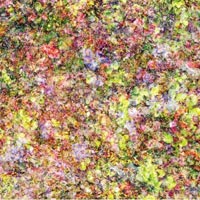
Although the sound on this album is not very original, Le Loup manages to pull off indie folk with far less pretentiousness than many other bands who try. They find an out-there instrument they like, in this case the banjo, and stick to it. The experimentation then happens within a small scope of options — there’s no crazy vocal surprises or instruments from a land no one’s heard of — it’s all quite straightforward and done so well. Think Animal Collective, Fleet Foxes and Sufjan Stevens running a school — Washington DC-based Le Loup would be their top student. The anthemic Forgive Me and the foot-tapping Family and Sherpa are top tracks. The best part, undoubtedly, is that they took the album’s winner, Beach Town, with its faraway vocals, and made a calmed-down version with clearer vocals and a more pronounced melody, eight tracks later. Homely, folksy, countryside, old-fashioned family values with numerous mentions of grandfathers, sisters, beaches and mountains, make this album as wholesome as indie can get. — Ilham Rawoot
Kurt Vile
Child Prodigy (Just Music)
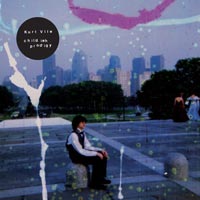
Dirty rock ‘n roll has a new star and he goes by the name of Kurt Vile. This Philadelphia native has been shredding guitar for The War on Drugs for a good few years now, but it is his solo career that is a way more interesting prospect. His music sits somewhere between American greats such as Bruce Springsteen and Tom Petty, but with a healthy dose of Velvet Underground dissonance and Stooges distortion thrown in for good measure. Child Prodigy, Vile’s third solo album, sees him moving away somewhat from his lo-fi bedroom recordings to a new place where Americana meets punk, thanks in no small part to his backing band, the Violators. Opener Hunchback is a swampy psych-garage monster, and Freak Train updates the Springsteen-esque American road song for a new generation raised on waves of guitar squall. Other highlights include the folky Blackberry Song, the Sonic Youthesque Monkey and the psych-blues of Inside Lookin Out. Vile has a serious future ahead of him and Child Prodigy feels like a significant step towards realising that potential. — Lloyd Gedye